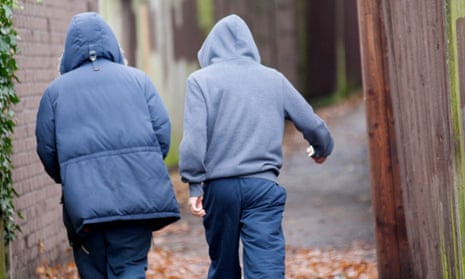Terry Galloway and his siblings grew up in care. His sister had a difficult life, which ended when she was murdered by a partner. As children, the Galloways made a pact to try to improve the care system, which is part of the reason why he will travel to Downing Street as part of a delegation of care leavers on Tuesday. Their petition objects to a new law that, because it took the form of secondary legislation, has so far failed to generate the national outcry that it merits. That law makes official in England the practice of forcing children out of care at the age of 16.
Between 2018 and 2020, while living in this type of setting, 22 children aged 16 and 17 died. The government won’t say which councils were responsible for these children, but a review following the death of Caitlin Sharp criticised Worcestershire social services, and said that she should not have been living independently, partly due to her epilepsy. Forcing children to manage life on their own leads to other forms of harm too. Last year, the Together Trust found that 3,253 16- and 17-year-olds were not in education, employment or training while living in non-care settings. More recently, Ofsted published research showing that more than a third of care leavers don’t know where to turn in an emergency, and that money worries make many feel unsafe.
The Children Act of 1989 allowed for unspecified “other arrangements” to take the place of foster or children’s homes in some cases. But the increase in such arrangements is unprecedented: in the decade from 2010 to 2020, the number of non-care placements rose 89%. It was evidence of the damage this was causing, including the exploitation of children by criminal gangs, that forced ministers to tighten the rules. But while a small number of under-16s stand to benefit from new regulations, a much larger group of older teenagers face their lack of entitlement being made a permanent feature of the English care system. While Ofsted will have oversight of unregulated accommodation providers, individual properties will not be inspected. Young people will be expected to take full responsibility for their finances and medical care, and will not need permission to stay out overnight – all while doing their GCSEs.
It is hard to know whether to be more shocked by these details or the muted reaction to them. A small charity, Article 39, is taking the government to court, but the silence from the rest of the children’s sector, wider civil society, the Labour frontbench and the House of Lords is eerie. Do all these adults agree with ministers that 16-year-olds don’t need to be “looked-after children” any more?
Increasing the school-leaving age has long been regarded as a badge of progress – proof of a society’s commitment to the next generation. The care-leaving age may lack the same universal significance. But the principle, as well as the practical folly, of trying to make some of the most vulnerable young people in society independent before they are even fully grown should bother us all. Withdrawing care from teenagers deliberately shortens their childhoods.
